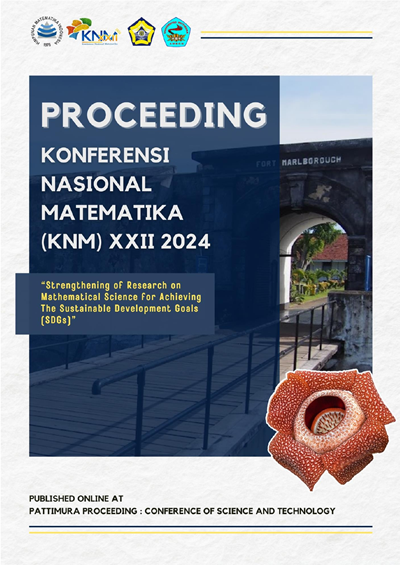Evaluation of Validity and Reliability Using Rasch Model and SPSS on Students' Mathematical Creative Thinking Ability
Abstract
Mathematical creative thinking is an important skill for students to face global challenges and
advances in science and technology. However, previous research shows that this skill is still
low among Indonesian students. Accurate measurement can be ensured by valid and reliable
instruments. The purpose of this study is to evaluate the validity and reliability of the
mathematical creative thinking ability test instrument using the Rasch Model and SPSS. The
research method is quantitative with a survey approach, involving 106 participants from
various demographic backgrounds. The results of the validity test using the Rasch model
showed that the eight items on the mathematical creative thinking ability test instrument met
the criteria with the ideal value range for Outfit MNSQ, Outfit ZSTD, and PTMEA-CORR. In
addition, the validity test results using SPSS show that the eight items have a correlation
coefficient value that exceeds the r product moment value. The results of the analysis showed
that the instruments tested were valid and reliable with a Cronbach's Alpha value of 0.73
using the Rasch Model and SPSS. However, the Rasch Model showed 24 persons that did not
fit, which means that the Rasch model's ability to provide more specific results. Both methods
can be used effectively to measure the validity and reliability of mathematical creative
thinking test instruments and the Rasch Model provides more detailed information in
identifying persons who do not fit
Downloads
Copyright (c) 2024 Pattimura Proceeding: Conference of Science and Technology

This work is licensed under a Creative Commons Attribution-NonCommercial-ShareAlike 4.0 International License.












